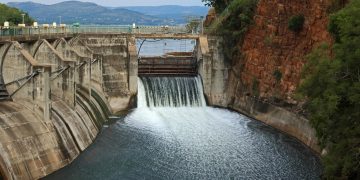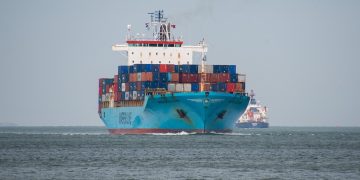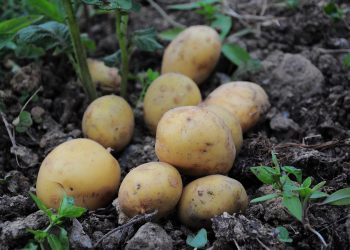An undisrupted environment and healthy ecosystems constitute the foundation of our economy. There is a growing consensus that the global economy is inseparably linked to the health and vitality of our environment and that our socio-economic dependency on the environment and its ecosystems can lead to vulnerabilities. The degree of human dependency on them is shaping also the financial landscape: environmental crises like climate change or biodiversity loss — previously overlooked by the financial sector — are emerging as sources of risks for the systemic financial instability, potentially impacting the real economy. The European Commission’s Joint Research Centre (JRC) is a key player in linking environmental challenges with economic risks. JRC’s findings, which have been pivotal in informing the report of the ECB/ESRB Project Team on climate risk monitoring established by the European Systemic Risk Board, are at the cutting edge of risk assessment and policy development.
Climate-related financial risks – The economic impact of a warming world
Climate-related financial risks stem from both the physical impacts of climate change, such as extreme weather events and the transition risks associated with the shift towards a low-carbon economy.
Transition risks arise when funds are allocated to economic ventures that will eventually become obsolete during the shift to a low-carbon economy (e.g. due to changes in consumer sentiment, the introduction of green technologies or changes in regulation). The danger lies in the fact that significant physical assets, like a coal mine, might become abandoned or unusable — stranded — in this transition, leading to financial losses on the investments made. Based on an estimation methodology proposed by the JRC, around 11% of European investors’ portfolios are exposed to climate-transition risks, against around 3% of green exposures.
At the same time, the increase in frequency and severity of climate change-induced natural disasters is amplifying physical risks to financial assets. By way of example, banks could face the risk of loan defaults if their borrowers are hit by a flood or a hurricane and cannot pay back their debt.
The research conducted by the JRC and featured in the ECB/ESRB report highlights the significant impact of floods on loan default probabilities. Specifically, a study titled Flooded credit markets: physical climate risk and small business lending shows that firms exposed to a flood event are up to 30% more likely to default on their loans in the two years following a disaster. This finding is primarily driven by the destruction of physical assets and ongoing disruptions to business operations, which deplete their financial reserves. Additionally, the study demonstrates that the risk of flooding is typically factored into new loans, resulting in higher capital costs for European SMEs exposed to flood risk. Nevertheless, the average risk premium is rather small, and does not adequately reflect the deterioration of loan performance in the aftermath of flood episodes. This suggests that even though lenders do recognize the risk of floods and starts factor this risk into loans, the risk is not accurately reflected.
A recent study shows that bank losses triggered by flood events could increase substantially under a 3℃ scenario, reaching 1% of bank total assets in regions prone to such geographic risk. Nevertheless, while the overall cost for taxpayers may be reduced by insurances as a risk transfer, limits to insurances come from insurability and affordability concerns, as another JRC study shows. These findings underscore the urgent need for adaptation and mitigation solutions to manage climate-related financial risks.
Biodiversity-related financial risks – Unveiling the hidden economic costs
Biodiversity loss and environmental degradation can also be source of financial risks. Those financial risks can arise due to dependencies of production activities on biological resources and ecosystems (ie: agriculture, fisheries, and pharmaceutical, to mention some) or due to the impacts that these sectors are generating on nature.
When firms face significant risks due to biodiversity loss and degradation of ecosystems, their creditworthiness may be compromised. Therefore, banks that finance clients whose activities depend on natural assets and biodiversity — or have significant impacts on their conservation — in turn face risks associated with degradation of nature. The JRC’s study Loan pricing and biodiversity exposure: Nature-related spillovers to the financial sector suggests that financial players are increasingly taking into account impacts on natural services as risk factors, and factoring them in, when determining loan prices.
Another forthcoming JRC study, which also fed the ECB/ESRB report (Ecosystem- and biodiversity-related factors in the European stock market), will be published early 2024. It applies a widely used framework to assess how much assets within a European stock market portfolio depend on ecosystem services and negatively impact biodiversity. Further analysis unveils environmental implications for financial returns. For instance, it shows that since the Paris Agreement, investors have not only focussed on CO2 emissions, but also other types of pollution. The study also suggests improvements for future nature-related financial risk assessments going forward, by utilizing JRC data on ecosystem services and natural hazards, and data from other European institutions on the pollution levels of companies.
The Imperative of monitoring ecosystem integrity and dependencies
According to the initial results of the Integrated Natural Capital Accounting (INCA) project, the value of nine ecosystem services at the EU-27 level for 2018 was reported to be €187 billion. Almost 50% of this value (which should be considered only as an initial reference estimate of the value of a subset of selected services) is credited to forest and woodland ecosystems, which provide a diverse array of services. These services not only benefit the primary sectors but also the broader society, offering public benefits like climate regulation and maintenance of habitats and species.
All findings above underscore the importance of monitoring and preserving environmental and ecosystems integrity not just for ecological reasons, but for their services contribution to the economic system and as a matter of financial stability.
This monitoring can be achieved by integrating current National Accounts with a system of Natural Capital Accounts expressed in economic terms, in line with the UN framework, called SEEA-EA (System of Environmental Economic Accounts – Ecosystem Services). In this regard, the JRC’s Integrated Natural Capital Accounting (INCA) project is a pioneering initiative which shows that the socio-economic dependency on ecosystem services and the vulnerabilities associated with their overexploitation cannot be overlooked. A pilot case for the agricultural sector, part of the LISBETH work, has provided valuable insights. It focuses on the impact of the Asian hornet, an invasive species, on crops that depend on pollination. The study examines how these hornets affect the agricultural output in EU countries with the highest Gross Value Added. Specifically, it looks at reduced production and exports of agricultural products, as well as the resultant price increases. The findings shed light on the complexities of ecological dependencies and highlights the need for sustainable practices to safeguard ecosystem services.
JRC research also points to the relevance of climate risk considerations for public finances. As governments gain a key role in investing in climate and environmental action, they become major players in green capital markets. JRC results that fed the ECB/ESRB work (the complete working paper will be published early 2024) show that green bonds issued by sovereign states are a credible signal of their green credentials and commitment to finance low-carbon infrastructure, address climate change and pursue other environmental goals.
As we continue to grapple with the twin crises of climate change and biodiversity loss, these insights serve as vital tools for financial researchers and policy-makers in fostering a sustainable and resilient global economy.
O artigo foi publicado originalmente em JRC.






















































